HDC Spotlight: Michael Curry
Michael Curry helps young adults with disabilities transition from high school into an independent life through the Human Development Center’s Postsecondary Apprenticeship for Youth, better known as the PAY Check program. Since joining the PAY Check team, Michael helped kick-start the first PAY Check program on the Northshore, which includes 4 young men from St. Paul’s high school.
Q: What do you do as a Transition Specialist at PAY Check?
Michael: I help college-aged students with disabilities transition from high school into their adult lives by teaching and providing opportunities to practice work and life skills that will help them obtain lives of independence.
My clients set work and life goals for themselves and it’s my job to support them and provide the resources and pathways to accomplish the goals.
Q: A major part of PAY Check is the paid internships. In your experience on the Northshore, how has this motivated your PAY Check interns?
Michael: Once the participants see that they’re making some money, they start to get motivated to work harder so that they can get a better job. Having a job builds their confidence and getting paid makes them feel valued.
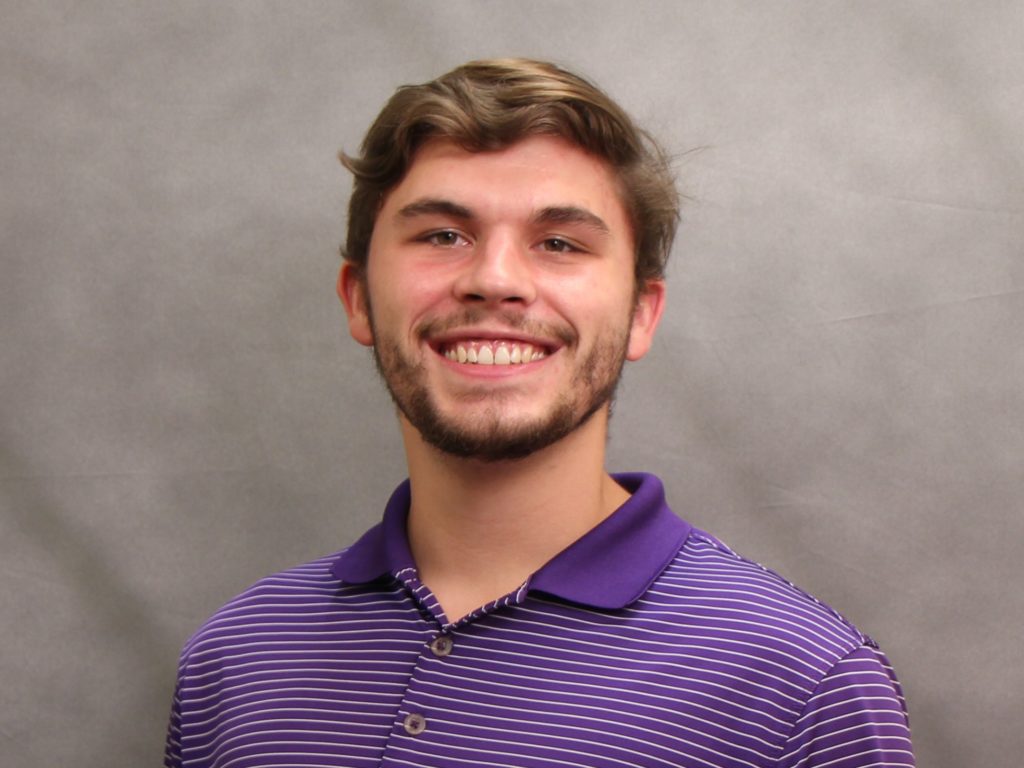
A lot of young people with disabilities are separated in their own little areas at school. They have their own classrooms on campus and they’re not fully included in the school community. I think they recognize that and it makes them feel like they’re not valuable or like they don’t have much to contribute.
But then, the individuals we serve get an internship and they get paid just like everybody else. They think, “I can do anything that anybody else can do,” and that’s honestly one of my favorite things to watch in the PAY Check program.
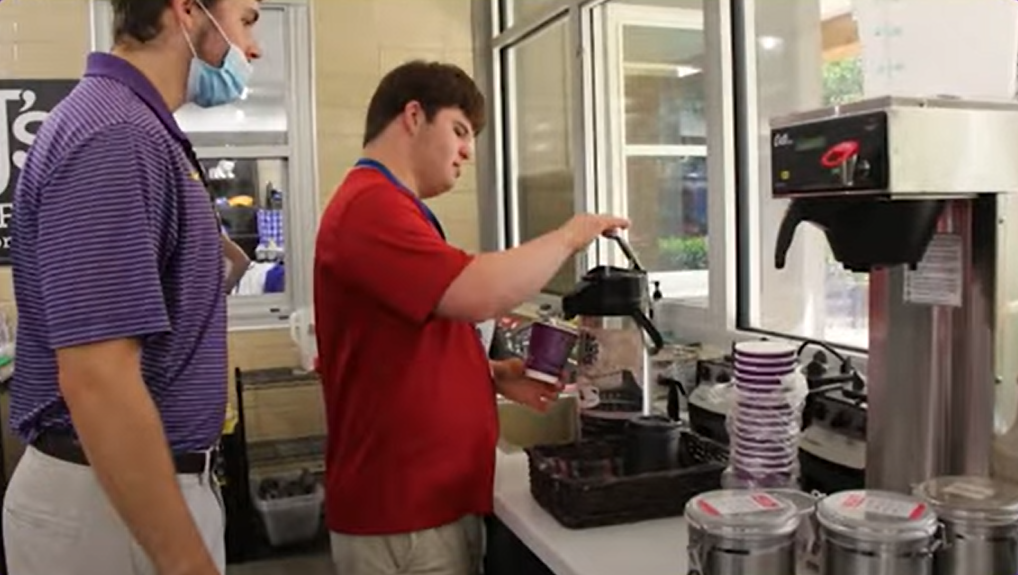
Q: What advice would you give to others helping individuals gain independence for themselves?
Michael: You know, you’re not trying to change the person you’re providing services for. You want them to be themselves, and it’s your role to find the environment or resource that works for each unique individual. If you’re pushing a situation that isn’t the right fit or trying to change them, they’re not going to be successful. Help them on their journey, which is guided by them – not you.
Q: What advice would you give to help others become self-determined?
Michael: That’s actually been one of the more difficult parts of the job, but I think the best tool is for them to actually understand what a self-determined life is. The goal is to empower individuals to make decisions for themselves. Speak with and motivate the families, friends, and professionals around to encourage individuals with disabilities to make choices for their own life.
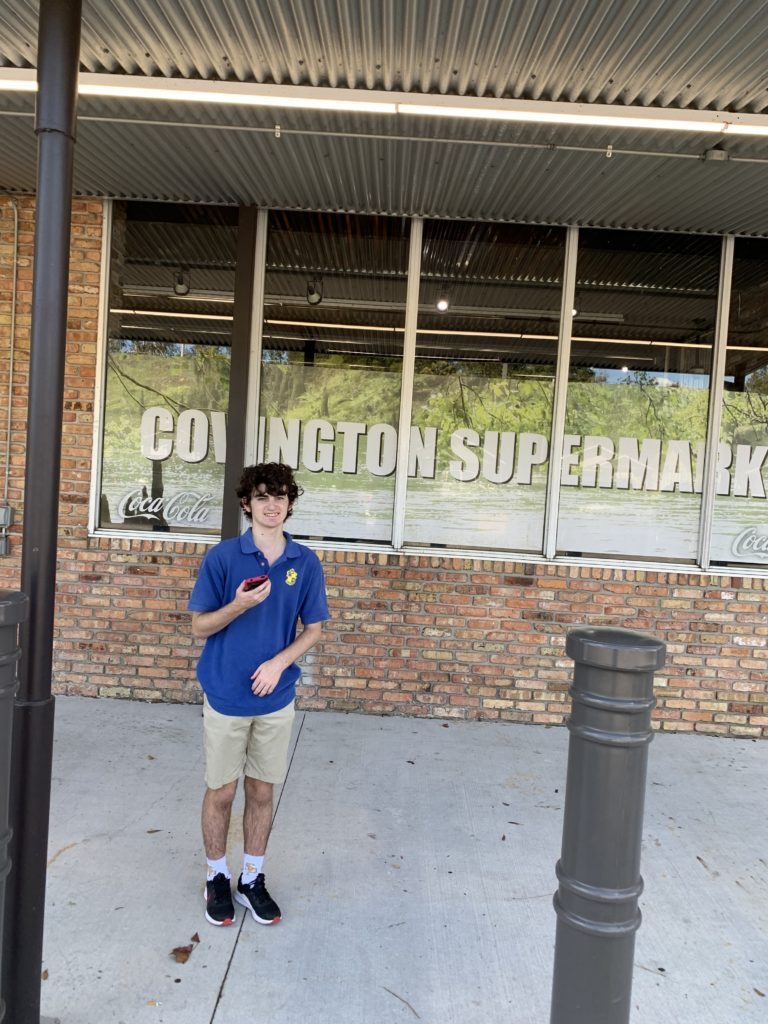
However, self-determination isn’t just about empowering an individual to set goals for themselves. I think a key to teaching self-determination is recognizing an individual’s strengths and weaknesses and helping them understand what they need to work on to accomplish their goals.
This is something I really stress with my PAY Check participant Luke. He said, “It makes me sad that my brother can go to college and be a lawyer. I don’t have that opportunity because of my disability.” That’s not necessarily true. He might not want to be a lawyer, but he can go to school. And that’s the thing – recognizing that if he doesn’t like to read all that much then maybe he shouldn’t be a lawyer.
Self-determination is recognizing what value you can bring to the community and readjusting your goals so that you’re happy with yourself for what you can contribute. Don’t compare your own pathway to someone else who has different abilities. You have to set realistic, achievable goals for yourself.
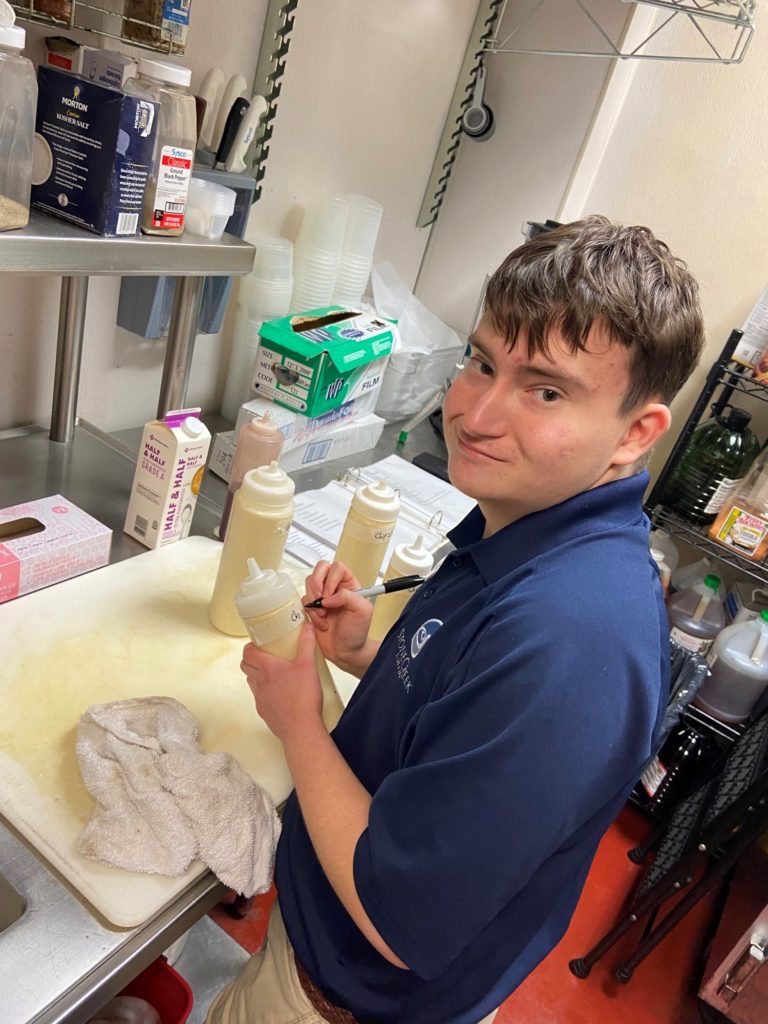
Q: What are some of your goals for the Northshore PAY Check program?
Michael: We don’t have the element of community college yet so my goal is to develop a relationship with Northshore Technical Community College. I also aim to develop a greater relationship with St. Tammany Parish public schools to gain more students and grow the program to become something bigger. The big picture goal is to make services like PAY Check a standard that everyone has access to.
As long as I’m making steps in PAY Check, I want to make sure this is a program everyone is aware of. I talk to so many people in St. Tammany about our program and everybody says, “Wow, that’s so awesome. We really need that here.” I don’t want that to be the reaction anymore. I want them to say, “Yeah, I’ve heard of PAY Check and that’s a cool program.” If I can have more conversations like that, more recognition of our program, and more successes in the community by the end of the year, then I’ll be happy with what I’ve done.
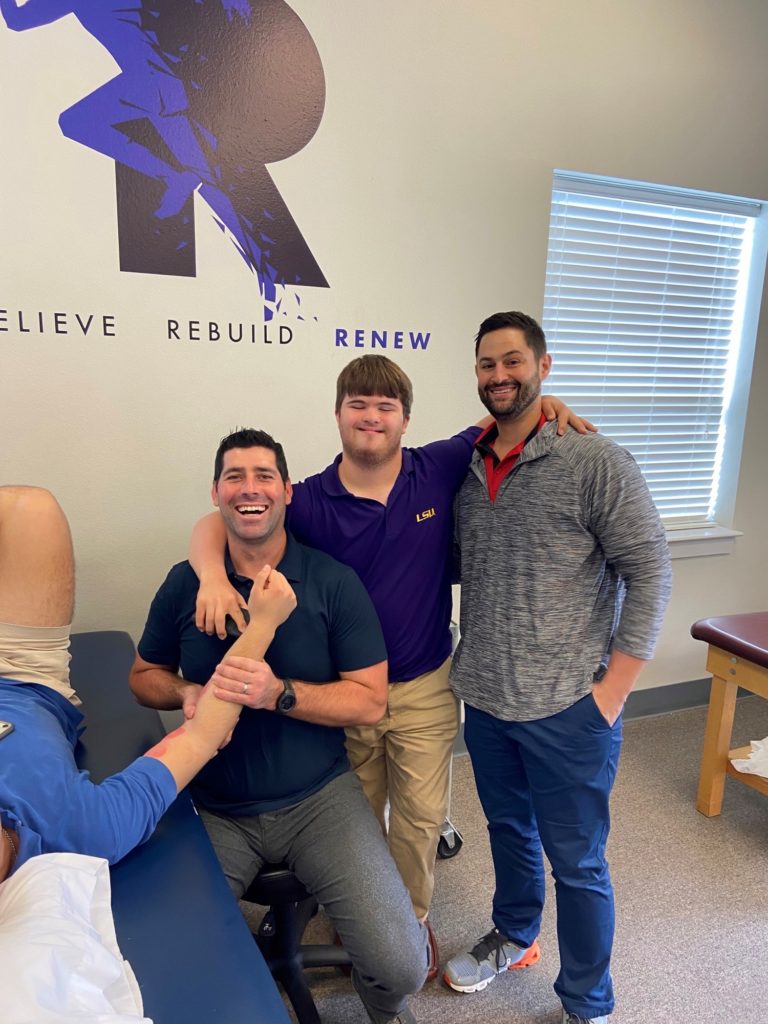
Q: What does Building Capacity. Inspiring Change. mean to you?
Michael: It means creating opportunities for everyone to become self-determined and showing the world that anyone can accomplish the goals they set for themselves. For PAY Check, that means making sure that everyone has access to transition services, and those who receive services will inspire change in their community. I want the Northshore to understand that anyone can do a job if they have the proper supports in place.
It’s time for our Northshore community to recognize that with efficient and effective supports, we can build a community that is all inclusive – a place where everyone can be successful.
About PAY Check
Postsecondary Apprenticeship for Youth (PAY Check) is an innovative collaboration between the LSUHSC Human Development Center (HDC), Louisiana Rehabilitation Services (LRS), public school systems, and employers in the New Orleans metro area – and now the Northshore!
PAY Check is a 3 semester program where students participate in courses at a post-secondary institution, engage in professional career development activities, learn community and work-related skills, and gain employment experience through two 10-week paid internships.

 myLSUHSC
myLSUHSC